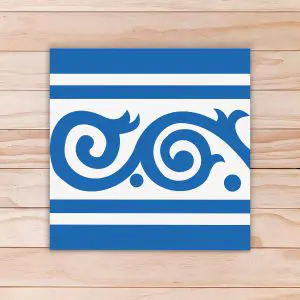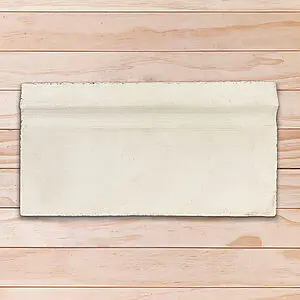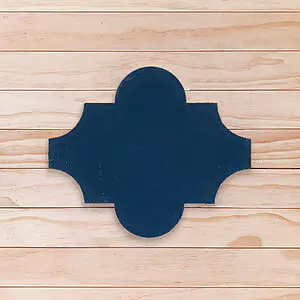CEMENT TILES
THE ENCAUSTIC TILE
Demosaica cement tiles are handmade tiles one by one, following the traditional process. They are composed of cement and a layer of marble and pigments. They are pressed in a hydraulic press and then left to dry in the air. Completely handmade and customisable, these tiles adapt to any space and needs.
Request a quote
OUR MODELS
At Demosaica we have a catalogue with more than 500 models of square and hexagonal cement tiles, borders and other formats, which we renew every year with new designs.
HANDCRAFTED PRODUCTION PROCESS
Hydraulic tile manufacturing process
HYDRAULIC STOCK
See all our models in stock, lots of designs in different styles ready for immediate delivery.
HYDRAULIC FLOOR SIMULATOR
Customise any of our tiles and create your own hydraulic floor design.
GALLERY
Be inspired by the photos of Demosaica hydraulic tiles installed in our customers’ projects. Kitchens, showers, patios, stairs and an endless number of spaces and applications with a wide variety of styles.
OUR COLOUR PALETTE
Below is the colour chart designed by Suelos Hidráulicos Demosaica, a wide and versatile range of colours to be able to give shape to all your decorative ideas.
OUR FORMATS
At Suelos Hidráulicos Demosaica we have a wide variety of formats for our hydraulic tiles, each of them with a different style. If you need to try another tile format or if you need us to send you samples, do not hesitate to contact us.




WHAT ARE CEMENT TILES?
These are handmade tiles, composed of cement and a layer of marble and pigments. They are pressed in a hydraulic press and then left to dry in the air.
CAN I CUSTOMISE THE HYDRAULIC TILES?
It is possible to customise our models. To do this you can use our online simulator, which you will find on our website.
We can even produce models designed by customers, creating a specific climbing frame for this purpose and producing a minimum of 10m2. The creation of a new model involves a cost, please consult with us in each case.
IS IT SUITABLE FOR PUBLIC AND COMMERCIAL SPACES?
Yes, hydraulic tiles are suitable for installation in public and commercial spaces. They have a slip resistance rating of 50.0 and are therefore classified as C3.
WHY CAN THERE BE SOME TONAL VARIATION?
All our products are completely handmade and therefore have variations in colour and tone, which is one of their main characteristics.
CAN COLOURS CHANGE OVER TIME?
Yes, colours are likely to change slightly over time.
IS TREATMENT NECESSARY?
YES. The use of a sealing treatment is essential to protect the tiles and ensure their good condition over time. As the tiles are made of
are very porous, they need protection against stains and humidity.
The application of the treatment should only be done during installation. Crystallisation is also recommended, especially if it is going to be in a high-traffic area.
IS SPECIFIC MAINTENANCE NECESSARY?
Hydraulic tiles should be cleaned with neutral soap and water. The use of any acid or abrasive product should be avoided.
HOW THICK SHOULD THE GASKET BE?HOW THICK SHOULD THE GASKET BE?
Hydraulic tiles should be installed with a minimum joint to reinforce the mosaic effect.
CAN TINTED GROUT BE USED?
The use of tinted grout is not recommended for any of our products as it may cause irreversible staining of the tile surface; always use white grout.
CAN THEY BE INSTALLED OUTDOORS?
This depends on the conditions to which the tiles will be exposed. High exposure to the sun or very low temperatures may slightly change some colours. For outdoor installation we recommend leaving a thicker gap than usual (3-4 mm).
CAN THEY BE USED AS KITCHEN FRONTS?
Yes, hydraulic coatings can be used for this purpose as long as the sealing treatment is applied to prevent possible staining.
CAN THEY BE USED AS CLADDING IN WET AREAS?
Yes, hydraulic tiles can be used in wet areas provided they have been properly treated.
CAN UNDERFLOOR HEATING BE INSTALLED UNDER DEMOSAICA MATERIALS?
Yes, hydraulic tiles are an excellent thermal conductor so they are perfect for this use. For installation over underfloor heating, we recommend leaving a thicker joint than usual (3-4 mm).
CAN HYDRAULIC TILES BE POLISHED?
Although the pigment layer of our tiles is several millimetres thick, we do not recommend polishing this material as the surface layer may be damaged during the process.
FIND OUT MORE
Introduction to Hydraulic Tiles
Hydraulic tiles are a type of floor and wall covering that have been present in architecture since the 19th century. These ceramic pieces are known for their durability, beauty and versatility. In this article, we will explore the history of hydraulic tiles, their manufacturing process and the most popular styles.
History of Hydraulic Tiles
Hydraulic tiles emerged in the south of France during the 19th century as an alternative to marble mosaics. Over time, they have been adapted to architectural trends and styles, becoming a key element in the decoration of interior and exterior spaces.
Origins and Influences
The origin of hydraulic tiles dates back to 19th century Europe, specifically in France. These pieces were inspired by Roman and Arabic mosaics, as well as Catalan ceramics. Their popularity grew rapidly thanks to their resistance and aesthetic appeal.
Manufacturing Process of the Hydraulic Tiles
The manufacture of hydraulic tiles is an artisanal process that has remained practically unchanged since its origins. The fundamental steps in this process are described below:
Preparation of the materials: Cement, sand and pigments are mixed to obtain a coloured paste.
Moulding: The paste is placed in a metal mould with the desired design.
Pressing: Pressure is applied with a hydraulic press to compact the paste in the mould.
Drying: The tiles are left to dry for 24 hours before being removed from the mould.
Curing: Finally, the tiles are immersed in water for a period of 28 days to complete the curing process.
Hydraulic Mosaic Styles and Designs
Hydraulic mosaics are characterised by a wide variety of designs and styles, ranging from classic to modern. Below are some of the most popular styles:
Classic Designs
Classic designs are those that evoke the aesthetics of bygone eras, such as Roman or Arabic mosaics. These patterns are often intricate and are characterised by geometric and floral shapes.
Modern designs
In contrast to classical designs, modern designs are more minimalist and abstract. They are characterised by straight lines, simple shapes and a more limited colour palette.
Custom designs
Hydraulic tiles can also be customised according to the customer’s preferences. This allows the creation of unique designs that reflect the style and personality of the space.
Installation and Maintenance of Hydraulic Tiles
The installation and maintenance of hydraulic tiles is a key aspect to guarantee their durability and beauty over time. Below are some recommendations for their correct installation and care:
Installation of Hydraulic Tiles
Surface preparation:
Make sure that the surface where the tiles will be installed is clean, level and dry.
Laying: Use a suitable adhesive for hydraulic tiles and apply it to the surface. Lay the tiles, leaving a joint of at least 2 mm between them.
Levelling: Check that the tiles are level and adjust their position if necessary.
Joint sealing: Once the adhesive has dried, apply a joint sealant to protect the tiles and give them a uniform finish.
Maintenance of Hydraulic Tiles
Regular cleaning: To maintain the appearance and durability of hydraulic tiles, clean regularly using a damp cloth and a neutral detergent.
Stain protection: Apply a specific sealer for hydraulic tiles, which will protect the surface against stains and make cleaning easier.
Avoid abrasive products: Do not use abrasive or acidic products as they can damage the finish and colours of the hydraulic tiles.
Treat specific stains: If stubborn stains appear, refer to the manufacturer’s recommendations for proper treatment.
Advantages and Applications of Hydraulic Tiles
Hydraulic tiles offer multiple advantages that make them an ideal choice for indoor and outdoor floor and wall coverings. Among their main benefits are the following:
Durability: Thanks to their manufacturing process and the quality of the materials, hydraulic tiles are resistant to wear and tear and the passage of time.
Versatility: Its wide variety of designs and styles allows hydraulic tiles to adapt to any space and decoration.
Easy maintenance: Hydraulic tiles require minimal maintenance, making them a practical choice for any project.
Water and stain resistance: Their manufacturing process and the use of specific sealants make them water and stain resistant, which makes them ideal for wet areas such as bathrooms and kitchens.
As for the applications of hydraulic tiles, they are ideal for floors and walls in:
Homes: living rooms, kitchens, bathrooms, bedrooms and hallways.
Commercial spaces: Restaurants, shops, offices and hotels.
Public spaces: Plazas, transport stations and historic buildings.
An exceptional choice
Cement tiles are an exceptional choice for floor and wall coverings, thanks to their durability, beauty and versatility. Their rich history and handcrafted manufacturing process give them a unique charm that adapts to any architectural and decorative style. Whether in residential, commercial or public spaces, hydraulic tiles add a touch of elegance and distinction, as well as being a practical and easy to maintain solution.
If you are considering renovating or beautifying your space, don’t hesitate to explore the wide range of hydraulic tile designs and styles available. Remember to follow the installation and maintenance recommendations to ensure that your tiles look impeccable and last over time. Whether you prefer a classic, modern or custom design, hydraulic tiles are a safe investment that will add value and character to any environment.





